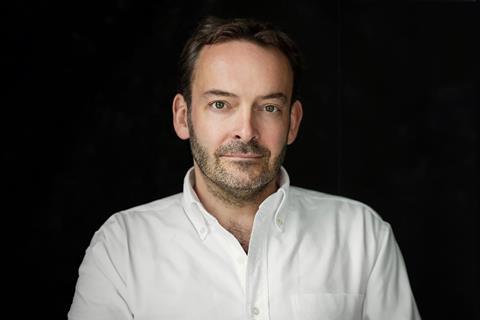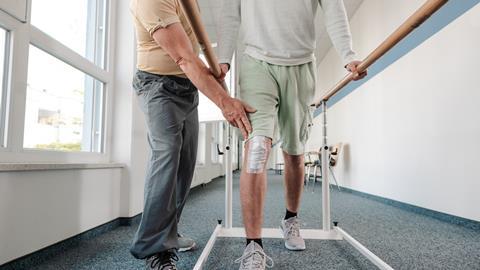The law firm Fletchers Group is seeking to enhance the image of the much-maligned claimant PI sector. In a hard-hitting report, the firm highlights the socio-economic impact of its work, saving the government millions while securing access to justice, reports Catherine Baksi
Claimant personal injury lawyers get a bad rap, cast as ‘ambulance chasers’ by critics and accused of fuelling a ‘compensation culture’ on behalf of clients on the take.
But one national, claimant personal injury and medical negligence law firm is looking to transform their image. It wants to show not just how claimant lawyers help seriously injured clients and their families, but that, far from draining money away from the government and National Health Service, they add millions to Treasury coffers and save hospitals money.
According to a report* commissioned by the law firm Fletchers Group, specialist lawyers who provide access to justice for injured people get clients back to work quicker and at less cost to the taxpayer. The report argues that, without legal help from the firm, injured clients would drain UK plc of £42m in lost economic output. This results in a net cost of over £100m to public sector finances and £12m in lower household incomes.
Extrapolating those figures across England and Wales as a whole, the report, by independent economics and policy research consultancy Pragmatix Advisory, estimates that the losses to the Exchequer caused by injured people would soar to £7.6bn. But, with legal help, those people and the UK economy would gain £7.4bn.
Explaining why he commissioned the report, Fletchers’ chief executive Peter Haden tells the Gazette: ‘I found an enormous dissonance between the work I see my colleagues do every day, their motivation for doing it and the value that brings, with the [negative] perception of the legal profession and of personal injury lawyers in particular.’
He observes: ‘They are dogged by a bad reputation for being “ambulance-chasing lawyers to claimants on the make”, when the reality is that they help people recover or rebuild their lives after sometimes catastrophic injuries.’

Haden argues: ‘We should be screaming from the rooftops about the work we do for clients and the wider impact on society.’ Yet he concedes: ‘Over the last 25 years, we’ve lost our voice in the sector and not done a great job of countering the narrative of insurers, politicians and others who do them down.’
Haden puts lawyers’ relative silence down to the fact that claimant law firms are much smaller than the institutions they are up against – including the government, insurers and the NHS – coupled with media ignorance. Moreover, firms have been focused on ‘surviving the onslaught’ of reforms that have been working against them.
Mike Benner, chief executive of the Association of Personal Injury Lawyers (APIL), notes that in recent years claimants have been subject to a ‘constant erosion of access to justice’. We have seen the removal of recoverable success fees and after-the-event insurance premiums through the Legal Aid, Sentencing and Punishment of Offenders (LASPO) Act 2012; fixed recoverable costs, which have failed to keep pace with inflation; and ‘unfair’ whiplash tariffs.
In summary, the report seeks to estimate the scale and value of the benefits that Fletchers achieves for its clients and evaluate the broader socio-economic impact of the provision of personal injury, clinical negligence and related legal services. It is designed to ‘make a positive case for the claimant sector,’ stresses Haden.
Researchers analysed data from 14,000 clients that Fletchers signed up last year, reviewing the characteristics and outcomes of over 200 recent cases. They also interviewed 57 members of the firm’s legal team and external experts, then scaled up those matters to reflect Fletchers’ complete casebook.
Alongside crunching the numbers, the report highlights the ‘significant’ impact that injuries have on clients’ quality of life. These include physical effects like pain, loss of mobility and long-term health complications that limit daily activities and independence, requiring sustained medical intervention, rehabilitation, long-term care and adaptive living. There are also emotional and mental health difficulties as individuals struggle with anxiety, depression or frustration over lost abilities and changed lifestyles – all of which are ameliorated by claimant lawyers’ work.
A Quality-Adjusted Life Year (QALY) is a standard, government-recognised measure used in healthcare to assess the value of medical interventions by combining the length of life with the quality of life experienced. On average, it is deemed reasonable to spend £79,000 in order to gain one additional year of quality of life.
By establishing the QALYs ‘lost’ by clients, researchers calculate the monetary value of the impact of personal injury or clinical negligence on clients who have been injured.
Over the year examined, Fletchers gained £217m in financial settlements for clients. Around 58% (£127m) went on the costs of treatment, care and rehabilitation. The remainder (£90m) was allotted to redress for the suffering incurred.
Without the intervention of Fletchers, the authors suggest that the total value of QALYs lost through personal injury or clinical negligence for all the clients signed by the firm in the financial year 2023/24 and their families would have been £411m. This comprised £370m in relation to physical impact, £22m reflecting the impact on family, and £19m for the mental stress and anxiety of being on a waiting list for treatment.
They value the reduced time spent on treatment waiting lists at £13m and the knock-on value of reduced anxiety to clients at £19m. All in all, the researchers estimate that the firm’s clients benefited to the tune of at least £252m.
Four out of five of the firm’s clients are of working age, and half had a job when they were injured.
The impact on household finances varies dramatically between different cases. But the report notes that estimates suggest individuals who have experienced clinical negligence lose an average of £2,200 of income if they do not seek legal support.
‘In addition, UK plc loses productivity capacity equivalent to an average of £11,500 of gross value added for each person/worker injured,’ says the report.
The authors cite £42m in lost economic output, a net cost of over £100m to public sector finances and £12m to lower household incomes, had those clients helped by Fletchers in 2023/24 not received legal help.
‘Treasury would miss out on around £14m in tax, while the Department for Work and Pensions would expect to pay out an estimated £2.5m in additional Universal Credit and other benefits, while the costs of treatment care borne by the NHS will exceed £91m,’ the report claims. It adds that these ‘conservative’ estimates do not account for the knock-on impact relating to the employment and earnings of family members who may need to take on caring responsibilities.
Moreover, says the report, getting injured people back to work, avoiding long-term financial strain for them as well as resourcing difficulties for their employers, adds to the coffers of government through increased tax receipts.
Claimant lawyers also contribute to the government’s goal of reducing the record 2.8 million people out of work due to long-term sickness, notes Haden, and cutting a health and disability benefits bill which is due to hit £100bn by 2030.
'The report proves that accessing justice for injured people is a good thing, and brings economic benefits to UK Plc'
Peter Haden, Fletchers
The public sector, and especially the NHS, is the defendant in many personal injury and clinical negligence cases and pays out £142m a year to settle Fletchers’ cases – and an estimated £7.6bn nationally. But the report notes that the government recoups more than 80% of that sum through higher taxes and lower healthcare costs, as treatment and rehabilitation is not paid for by taxpayers.
The report says: ‘Claims not only provide compensation to those harmed, but also serve as a tool for accountability, prompting the likes of the NHS to prevent similar incidents in the future.’
Moreover, the report states that Fletchers is a significant business in its own right, boosting the wider economy by around £95m.
‘The report proves that accessing justice for injured people is a good thing, and brings economic benefits to UK Plc,’ says Haden.
Law Society vice-president Mark Evans agrees: ‘A satisfactory outcome to a personal injury claim can deliver a positive result not only for the individual but also for the wider community.
‘We all benefit when those who injure others through negligence are held to account, as this creates a powerful incentive to take proper care and avoid causing harm.’
According to APIL’s Benner, the report ‘provides an insight into the huge contribution of the personal injury sector to the UK economy and society as a whole by helping to put lives back on track for victims of negligence’.
‘Its value is best demonstrated when a catastrophically injured person is fitted with the right prosthetic limb so that they can walk again, or the family of a child with cerebral palsy has the provisions to access appropriate care and equipment, or when an injured person can get back to work, their hobbies, and family life thanks to timely rehabilitation.’
‘Lawyers make that happen,’ he adds. ‘We wanted to have a positive story’ to address a whole range of audiences, concludes Haden. He cites potential new recruits, media, regulators, government and other stakeholders, including investors in the sector.
‘We want it to be a rallying cry to encourage peers to take a similar approach – to build a campaign and a more effective voice for the sector,’ he says.
Fletchers Group was acquired by an affiliate of Sun European Partners in 2021. Since then, it has acquired 10 firms, most recently the serious injury and clinical negligence practice of Shoosmiths. The group employs over 1,000 people across offices in Manchester, Liverpool, Leeds, Southport, Bolton and Cambridge.
Haden insists that the firm is not up for sale. ‘Sun European have been great owners and we anticipate working with them until 2030,’ says Haden.
Private equity has recently made greater moves into the legal sector. Last month, August Equity announced an investment in West Midlands law firm Higgs, and Pollen Street Capital recently acquired a majority stake in Manchester-based restructuring consultancy Leonard Curtis.
Of course, what matters to PE investors above all else is the bottom line. But Jeff Zindani, managing director of Acquira Professional Services, a merger and acquisition broker for law firms, acknowledges that reports such as this do serve a purpose.
‘For years, the sector has carried a reputational weight, and private equity-backed firms know they must be seen as socially responsible players, not just claims machines,’ he says. The study ‘helps Fletchers reposition itself as a business delivering societal value, which is an important narrative for regulators, policymakers and the public’. However, ‘investors are not swayed by glossy socio-economic reports. What really matters is the hard economics: a strong, profitable business with sustainable margins, predictable cashflows and a clear route to growth.’
* The value of recovery and redress: Assessing the social and economic impact of Fletchers Solicitors
































1 Reader's comment